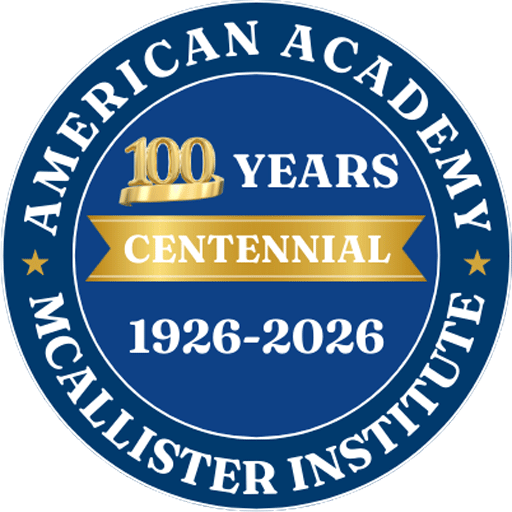
The role of a funeral director is multifaceted, involving everything from hard study in the field of mortuary science to providing compassion and empathy for grieving families as they say goodbye to their loved ones. Funeral directors are responsible for overseeing every aspect of funerals, from arranging services and counseling families to embalming and respectfully presenting the deceased. Aspiring funeral directors can look forward to a stable career but should also be aware of the comprehensive list of requirements and expertise of those in the funeral service education field.
Funeral directors guide families through one of life’s most difficult trials, and each step requires compassionate knowledge of the cultural, religious, legal, logistical, and even scientific steps that need to be taken to properly respect the deceased.
In this article, we’ll outline the role of a funeral director, including the job duties, education requirements, ethics, and challenges that it entails.
What is a Funeral Director?
A funeral director is a licensed professional responsible for arranging and overseeing funeral and memorial services. Though funeral directors, morticians, and undertakers are often used interchangeably in the U.S., the roles are not identical.
Funeral directors handle the logistics and legalities of the funeral process itself, including coordinating the event, providing grief counseling for families and loved ones, filing the correct legal documentation, and caring for the deceased in accordance with their religious and cultural beliefs.
What are the Job Duties of a Funeral Director?
Funeral directors are expected to perform many roles in the process of arranging and conducting funeral services. These are the primary duties that funeral directors can expect to learn and perform:
- Coordinating all aspects of funeral and memorial services, including venues, transportation, music, readings, and communicating with cemeteries, crematories, clergy, and vendors
- Working with grieving relatives to discuss last wishes, next steps, and the necessary paperwork, including death certificates and permits
- Preparing the deceased for viewing, burial, or cremation, including possible supervision of embalming and restorative procedures
- Complying with local, state, and federal laws regarding death care
- Providing grief counseling
- Operating the funeral home business, if applicable, including budgeting, managing staff, marketing, and providing customer service
What is the Golden Rule for Funeral Directors?

Funeral directors operate by their own version of the golden rule derived from the codes of the International Order of the Golden Rule (OGR), which reads, “Treat every family as if they were your own.” In practice, this means devoting oneself to reflecting empathy, providing personalized care, and maintaining cultural and religious integrity through the funeral process.
Abiding by this rule allows funeral directors to build trust with their clients and communities, develop a reputation for quality care, and empathize with grieving families.
Education and Licensing Requirements
Becoming a funeral director requires an associate degree in Mortuary Science from an accredited institution, such as AAMI. National boards and state-specific licensing exams are also required, followed by internships or apprenticeships under a licensed funeral director. Even after achieving the on-paper requirements for funeral service education, continuing courses can help guarantee that directors maintain their license according to their state’s requirements.
Why the Role Matters: The Value of Funeral Service
Funeral directors play an essential role by providing structure and comfort during times of loss. Professional services can help the loved ones of the deceased grieve with dignity. By helping them through their grief, funeral directors honor the traditions of each family according to how they say goodbye and pay respects to their faith.
The significance of the role, both culturally and for each individual family, is why professional integrity and following the Golden Rule are such important aspects of being a funeral director.
Challenges and Rewards of the Profession

Funeral directors are rewarded for their hard work and dedication with a stable career that presents many opportunities for advancement. They can also achieve a sense of personal pride in helping ease the pain of others. Yet, these benefits also include challenges, such as the emotional toll of such frequent exposure to grief and trauma. Additionally, funeral directors often work irregular hours to meet the needs of urgent arrangements or after-hours counseling.
Experienced Funeral Service Educators Will Help You Get Started in Your Career
In many ways, funeral directors occupy multiple jobs at once to provide the services their clients need. This is rewarding but also presents burdens, as funeral directors must rise to the challenges of this multifaceted career, which include arranging the ceremonies, preparing the deceased, counseling the families, filing the correct documents, and more.
Funeral direction requires a rare combination of emotional strength, detail orientation, and scientific learning. Institutions like AAMI support students in their pursuit of this rigorous yet rewarding career. Create an application or contact our team today to learn how AAMI helps students and professionals learn to provide these all-important services to the families that need them most.
FAQ
What are Three Things that are Prohibited Under the Funeral Rule?
The Funeral Rule, enforced by the FTC, protects consumers purchasing funeral goods and services by prohibiting three things:
- Misrepresenting legal or cemetery requirements
- Requiring the purchase of a casket for cremation
- Failing to provide a general price list (GPL)
What is a Typical Day for a Funeral Director?
On a typical day, funeral directors may be called on to meet with families, plan and coordinate funeral services, handle legal documents, oversee the process of caring for or restoring the deceased, counsel grieving loved ones, oversee ceremonies, liaise with cemeteries, or run the funeral home.
What is the Average Age of a Funeral Director?
The profession sees both young graduates and mid-life career changers, though most directors are between the ages of 30 and 55.
Is There a Demand for Funeral Directors?
Yes, demand is steady due to the rising size of aging population groups and the consistent need for end-of-life services. Job outlook remains strong, especially in rural or other underserved areas.
